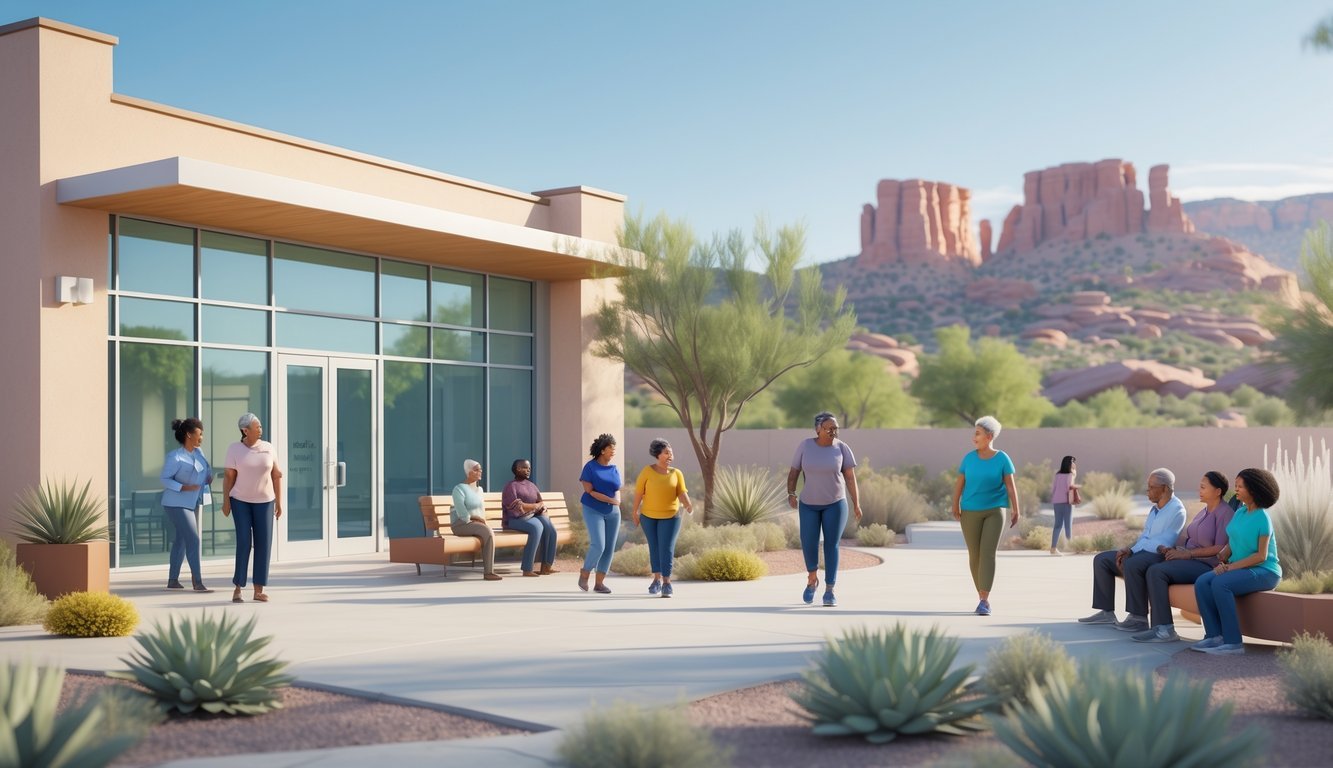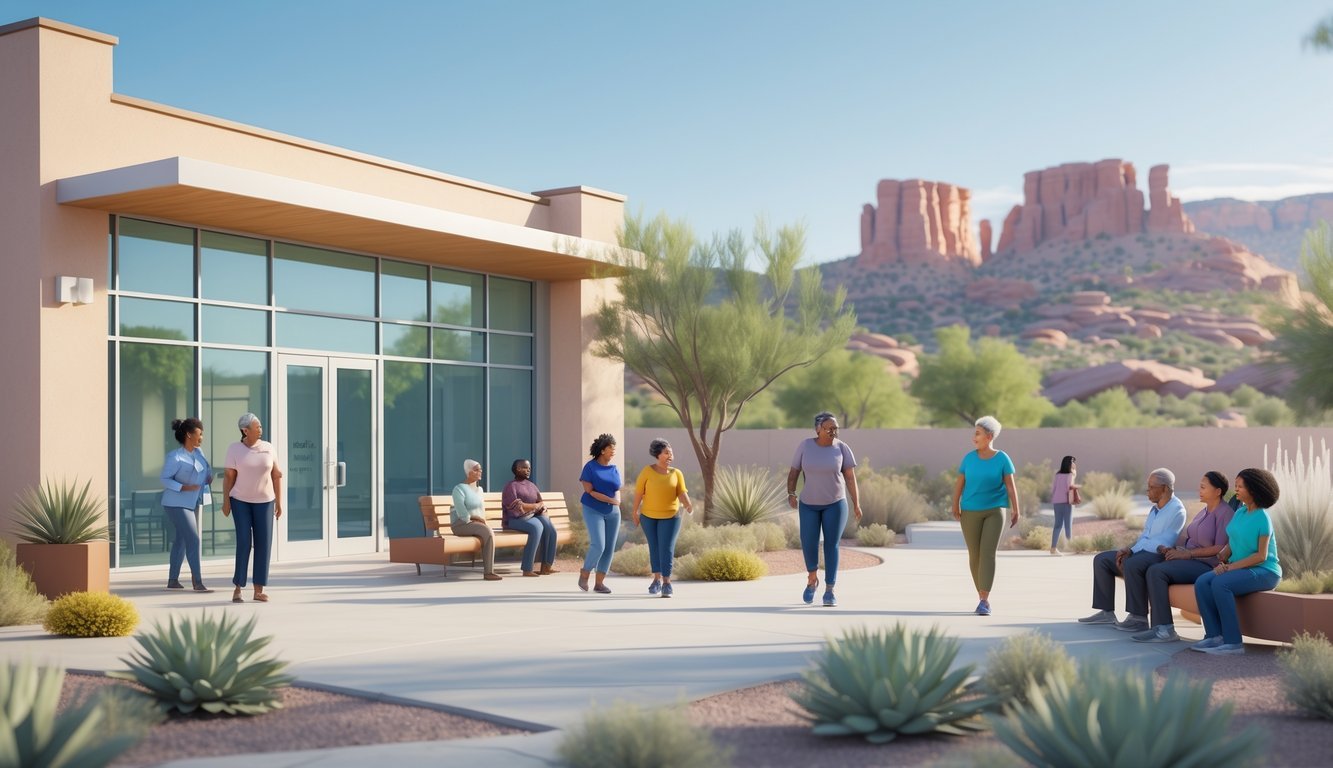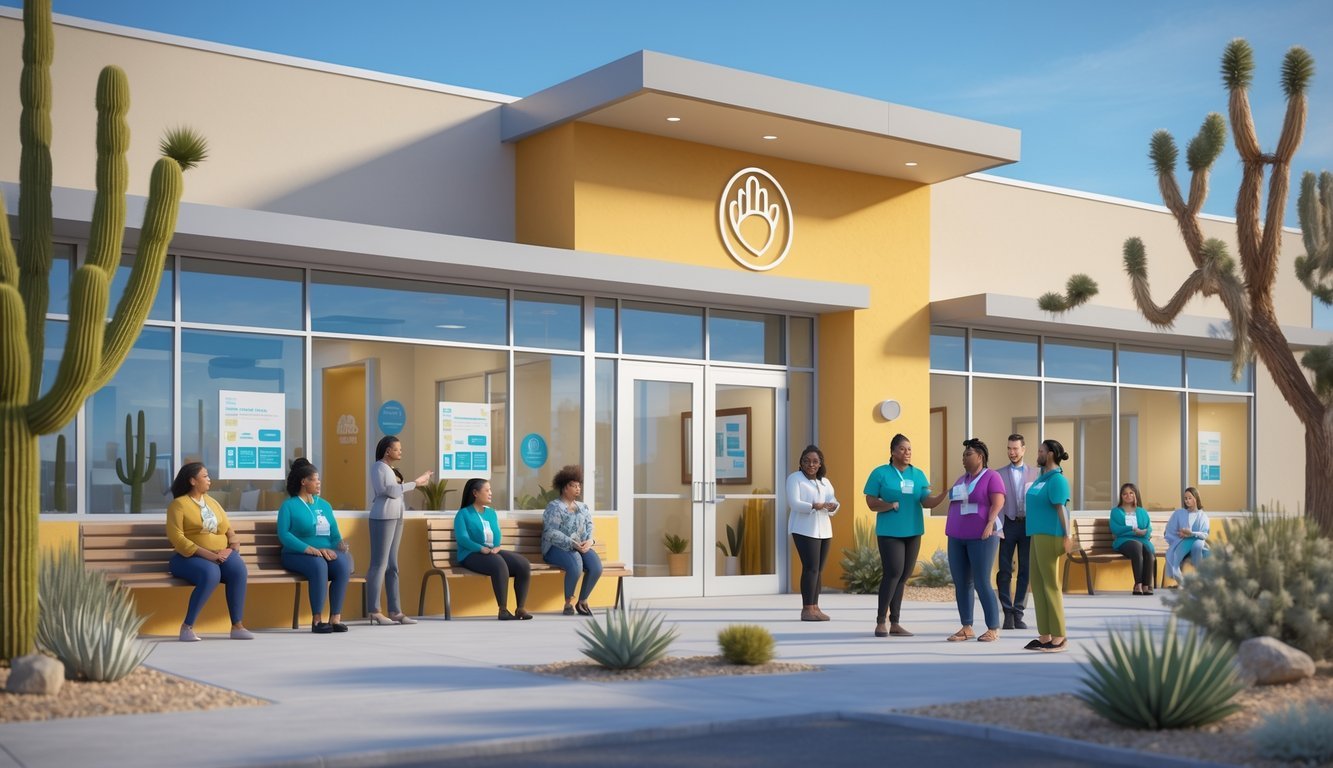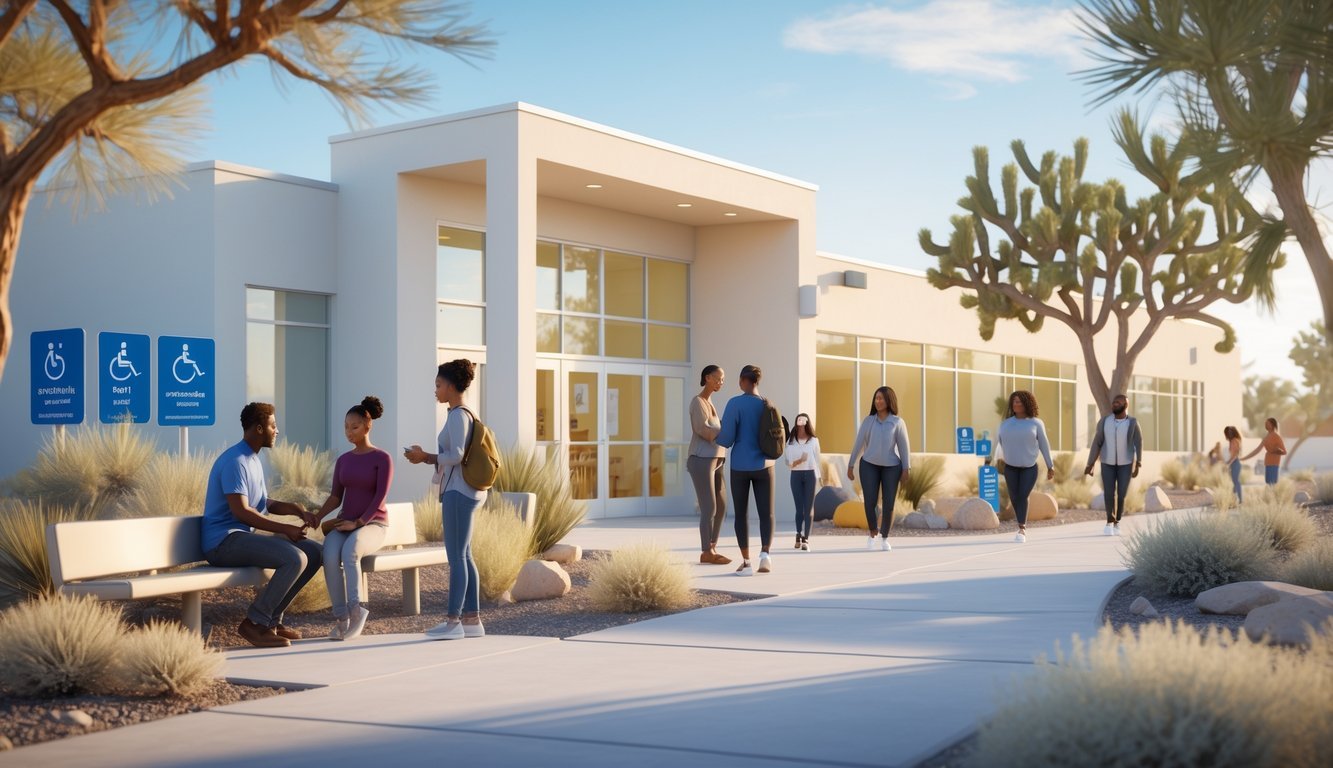PsychNewsDaily Publishers
100 Summit Drive
Burlington, MA, 01803
Telephone: (320) 349-2484
PsychNewsDaily Publishers
100 Summit Drive
Burlington, MA, 01803
Telephone: (320) 349-2484
Nevada offers accessible mental health support through various state programs, nonprofits, and community services, ensuring confidentiality and assistance for individuals regardless of income.

You don’t have to spend money or feel stuck when you need mental health support in Nevada. The state offers several free mental health services through programs, local organizations, and crisis support systems, open to all residents no matter their financial situation. You’ll find everything from urgent crisis help to ongoing counseling and support.

You can get help in a bunch of ways, like calling the state’s crisis response system or connecting with community-based programs. Nevada’s Medicaid program covers community-based mental health services for kids and adults who qualify. The state also runs special programs through different providers in counties across Nevada.
Knowing what’s out there and how to get started can really change things. Whether you’re in a crisis or just looking for steady support, Nevada’s set up several ways to connect you with professional help, free of charge.

You’ll find a range of free mental health services in Nevada, offered by government agencies, nonprofits, and schools. These programs usually serve people who meet certain income requirements and provide counseling, crisis help, and specialized care. They keep things private, too.
Most free mental health programs in Nevada use income to decide who qualifies. You’ll need to show proof of income, residency, and your insurance status.
Income Guidelines:
Documentation Required:
Students usually have different rules. Nevada State University counseling services are open to all enrolled students, no matter their income.
Some programs focus on certain groups. Kids, seniors, veterans, and people without housing often get priority.
Nevada’s free mental health services cover individual counseling, group therapy, and crisis intervention. Many places also treat specific conditions.
Individual and Group Counseling:
Crisis Services:
Specialized Programs:
Social workers in Nevada help with substance abuse and domestic violence support. Clark County provides social services with mental health options included.
Colleges offer their own campus-based services. College of Southern Nevada’s Charleston Campus has Mojave Mental Health Services and other student support.
Federal and state laws protect your mental health info. Providers have to keep your records private, with only a few exceptions.
Protected Information:
When Information Might Be Shared:
You can ask for copies of your records and see who’s looked at them. Most agencies will give you a written privacy policy.
Free services keep your info just as private as paid ones. Your ability to pay doesn’t change your privacy rights.

Nevada’s mental health services come through different places, like helplines, community centers, rural outreach, and nonprofits. These groups offer crisis help, therapy, and case management in both cities and rural towns.
Nevada 211 connects you to nearby mental health resources with a free phone call. Just dial 2-1-1 to talk to trained staff who can point you to the right services.
They’re available all day, every day, and cover the whole state. They’ll help you find crisis counseling, therapy, and support groups.
Mobile apps can help too, giving you quick access to mental health resources. Some apps have crisis chat and directories for local help.
You’ll also find peer support networks on some apps, where you can talk with others who get what you’re going through. These apps often include educational info on mental health and treatment.
Community mental health centers form the backbone of Nevada’s public mental health care. These centers offer individual therapy, group counseling, and medication management.
They usually provide:
Centers charge based on your income. Many take Medicaid and won’t turn you away if you can’t pay.
Mojave Mental Health Services operates in Las Vegas and runs several mental health programs. Staff help coordinate your care between different providers and connect you to more resources.
Rural Nevada deals with unique mental health challenges because of distance and fewer providers. Mobile crisis teams drive out to remote spots to give emergency help.
Telehealth lets rural residents talk to psychiatrists and therapists in bigger cities. You can get therapy or medication consults by video from local clinics or even your home.
Rural services often include:
Some rural clinics team up with hospitals and primary care offices to provide more complete care. This helps people get the treatment they need, even where specialists are scarce.
Nonprofits fill in a lot of gaps in Nevada’s mental health care. They often focus on certain groups or conditions, and provide peer support.
Many nonprofits run support groups led by trained facilitators or peers who’ve been there. These groups offer emotional support and practical advice.
Common nonprofit services:
Case managers help you find your way through the mental health system and connect you with housing, jobs, and other services that support your wellbeing.

Nevada has specific mental health services for conditions like depression and anxiety. Crisis help is always available through hotlines and emergency services.
Many providers in Nevada focus on treating depression and mood disorders. UC Davis Health delivers care for mood disorders and other mental health needs.
Community mental health centers across Nevada offer depression screening and treatment, often using a sliding scale for fees.
Typical depression services:
You can also ask your regular doctor for depression treatment. Many family doctors can prescribe antidepressants and send you to a specialist if needed.
Nevada’s community colleges have resources, too. Nevada State University students get 5 free counseling sessions that cover depression and mood issues.
Anxiety treatment is available in many places across Nevada. UC Davis Health treats anxiety disorders along with other conditions.
Most community mental health centers offer therapy for anxiety, like exposure therapy, relaxation training, and ways to manage stress.
Anxiety treatment options:
College students get extra support for anxiety. Student counseling centers offer anxiety management workshops and one-on-one therapy.
Private therapists in Nevada also specialize in anxiety. Many take Medicaid or offer sliding-scale fees.
Nevada has round-the-clock crisis support. The National Suicide Prevention Lifeline (988) connects you right away with local crisis counselors.
The Disaster Distress Helpline at 1-800-985-5990 provides immediate counseling for people affected by traumatic events in Nevada.
Crisis resources:
Hospitals offer psychiatric emergency services, and most ERs can get you in touch with crisis workers any time.
If you prefer texting, you can reach out by texting HOME to 741741 for the Crisis Text Line, anywhere in Nevada.
Getting free mental health help in Nevada means knowing where to look and what to do. Most programs have a few steps to apply and get ongoing care.
Start by calling your local county social services office. Clark County Social Services is open Monday through Friday, 7:30 am to 5:30 pm, and can connect you to mental health resources.
Dial 211 for fast referrals to services near you. It’s a free call and links you to mental health programs in your area.
If you’re a student, check with your college. Nevada State University offers 5 free counseling sessions each school year for enrolled students.
Visit local community health centers. Many use sliding-scale fees, and some services are totally free.
Ask local hospitals about their behavioral health programs. Many have outpatient services and free support groups.
Most free mental health programs ask you to do an intake assessment. This usually takes one or two hours and covers your mental health history, current symptoms, and financial details.
Bring these items to your intake appointment:
Programs often charge based on your income. If you earn below certain levels, you might qualify for completely free care.
Sometimes there’s a waitlist, especially for regular therapy. If you need help right away, ask about crisis services.
Case management makes it easier to juggle different services and stay connected to care. Your case manager helps set up appointments and links you to resources.
You’ll usually meet with your case manager once or twice a month. They can also point you toward housing help, job training, or other support you might need alongside your mental health care.
Try to keep your important documents together in one spot. Your case manager can help you sort out medical records, benefit info, and contact details for your care team.
Keep in touch, even on days when you feel okay. Regular case management lowers your chances of hitting a crisis and helps you keep your mental health on track.